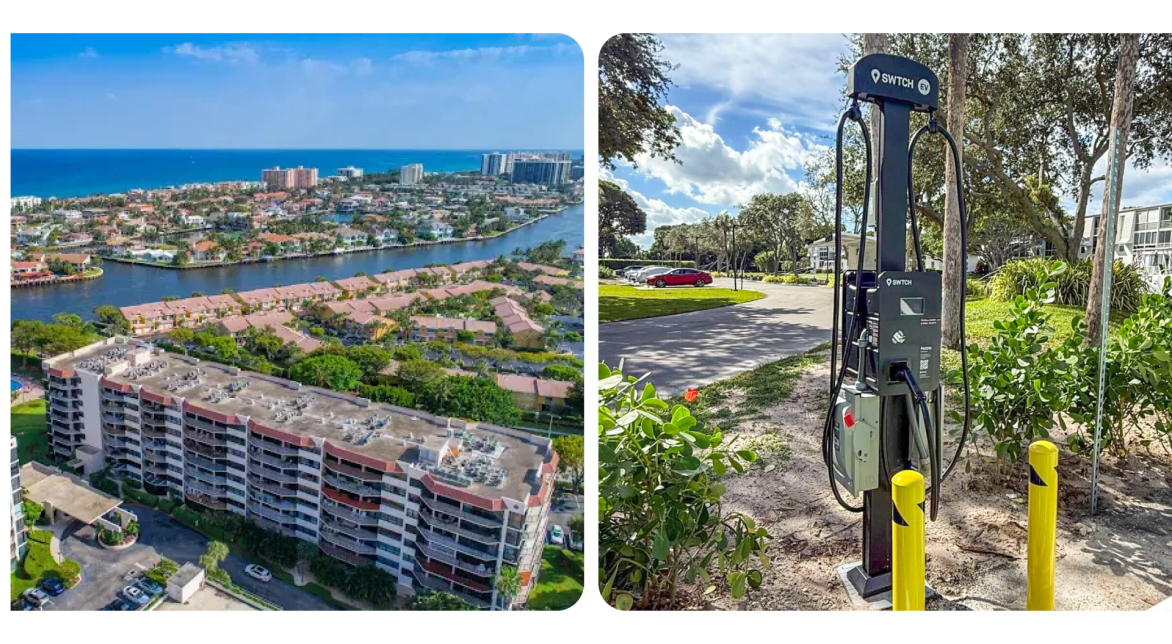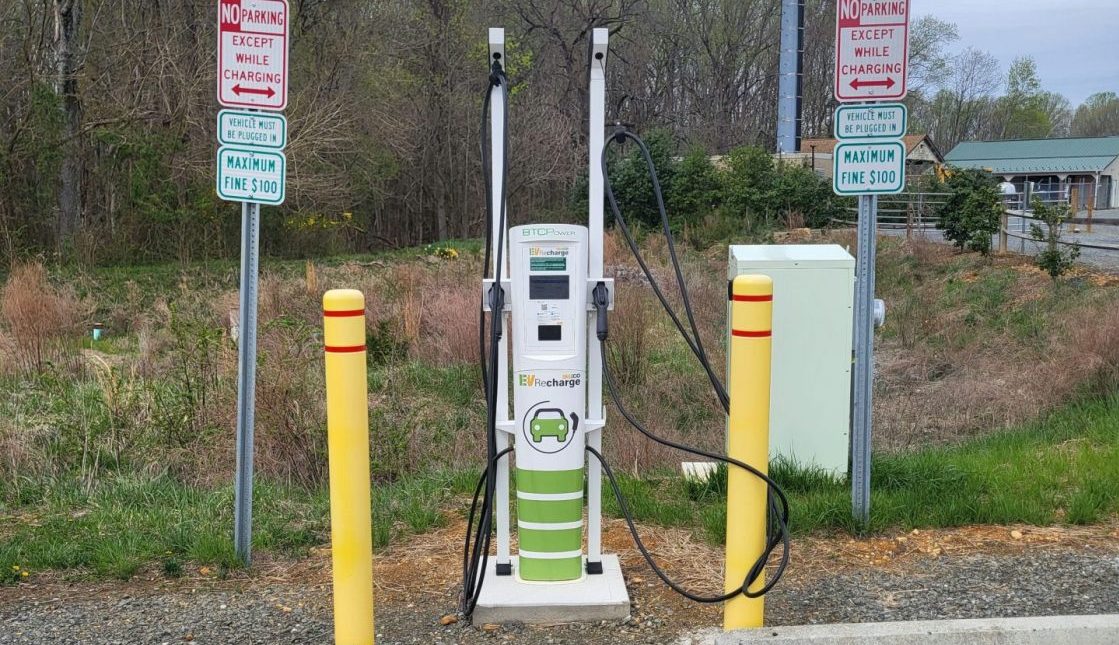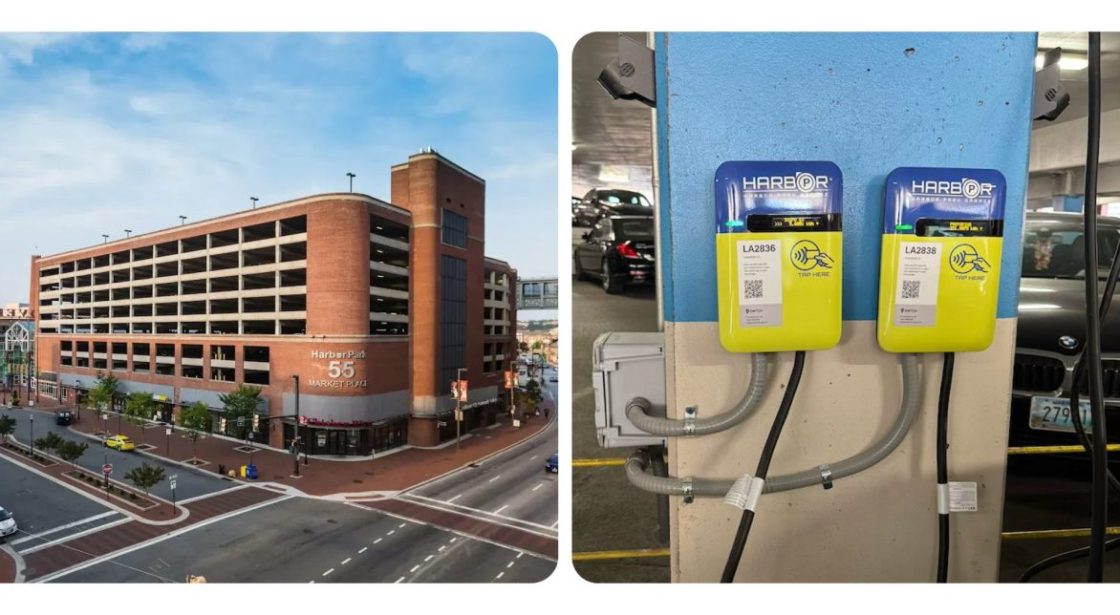Condo Unit Owners Band Together and Install 57 EV Chargers
In multi-unit residential buildings (MURBs) making any sort of collective decision is notoriously difficult. And with one in eight Canadians living in condos, group action when it comes to installing electric vehicle charging infrastructure is a common problem.
But for one Merton Street condo in midtown Toronto, residents banded together to achieve an impressive feat: 57 unit owners had EV charging stations installed in their deeded parking spots. The kicker is only three of them actually own an electric vehicle.
In partnership with electric vehicle charging technology company SWTCH and full-service installers Simply EV Charging Solutions, the condo board and property manager facilitated this installation earlier this year.
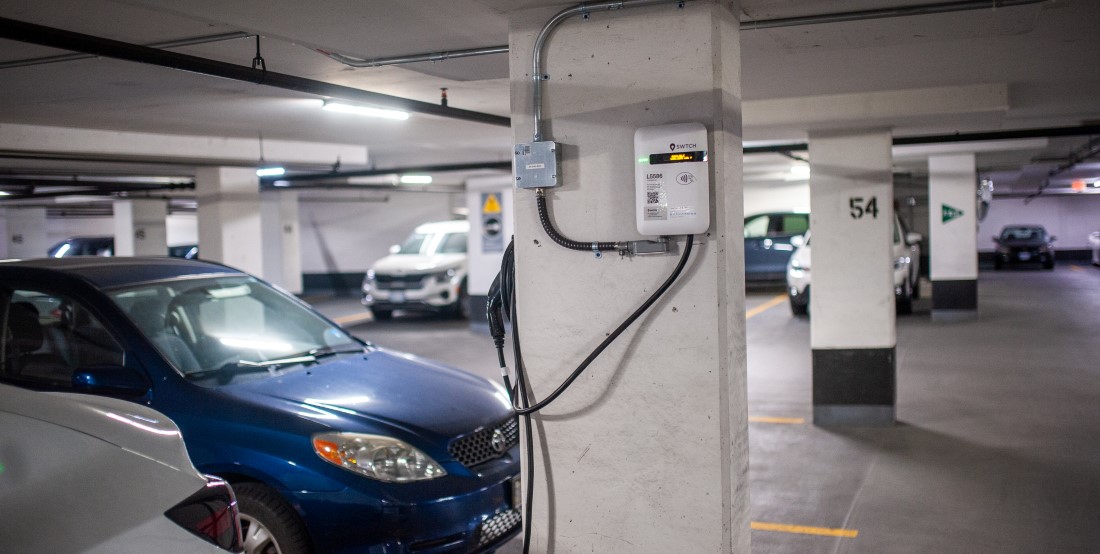
As a result, over 20 per cent of the building’s units boast EV charging capabilities. And there’s capacity to expand as demand grows.
“It was super easy to work with SWTCH and Simply. They made our work so much easier,”
Electric vehicle sales are skyrocketing across North America and there are a growing number of EV-ready bylaws across Canada.
Groundwork is being laid through government incentive programs. Now, property managers, boards and owners stand to benefit from myriad opportunities to partner with industry experts to access resources, defray costs and future-proof their investments.
The Merton Street condo board and residents serve as an excellent example of collective action done well.
The why and how
What convinced dozens of residents to pre-emptively electrify their parking spots? A combination of collective buying power, real estate values, reducing gas dependence and concern for the environment.
The condo board began investigating EV infrastructure for the building in 2018 when a resident inquired about it. The Ontario Condo Act requires condo boards (in most cases) to allow owners to install their own chargers.
But this board wanted to avoid a patchwork solution or, worse, a temporary fix needing overhauling in a few years. Its members thought if one resident wants this amenity, perhaps others will too.
The Merton Street condo board then hired an engineer to assess the building’s electrical infrastructure capacity.
But at a rough cost of $400,000, the prospect of offering widespread charging access seemed financially daunting. The board began to set aside money for the project, but it took a combination of the residents’ collective buying power reducing costs, savvy grant knowledge and strategic hardware and software applications to bring the project within reach.
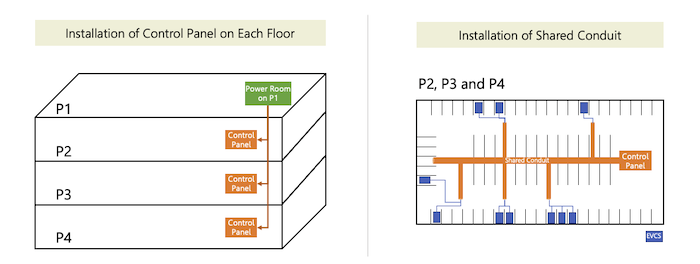
That’s where SWTCH came in. The company, which offers charging hardware and software, helped connect the Merton Street condo to relevant incentive programs and grants. In this case, funds from the Canadian government’s ZEVIP program covered 50 per cent of total project costs.
This grant all but eliminated the condo corporation’s upfront costs. Individual installation fees for participating unit owners ran roughly $4,000 — and uninvolved residents paid nothing at all.
“We had a strategy underway, but the catalyst for getting this project off the ground was access to this funding source.”
A forward-looking investment and partnership
For the Merton Street condo board and residents, installing EV charging infrastructure offers a boost to property resale values.
“Having an EV-ready building will enhance all unit values,” says Saevitzon.
While research is still ongoing to quantify this particular value add, an American study published this year in Nature Sustainability found that proximity to EV charging stations may command a premium of up to 5 per cent on the current real estate market.
And, of course, many residents want the option to buy an electric vehicle down the road and charge at home.
That’s what drew them to partner with SWTCH, which offers an intelligent load management system designed specifically for multifamily properties. With Level 2 chargers and SWTCH’s EV driver app and software, residents are able to connect to the charging network from their parking garage and pay individually for their usage — all while using the building’s existing power infrastructure responsibly. The software responds to demand fluctuations in real time. This means the building can harness the lower off-peak electricity rates overnight for the majority of their charging needs.
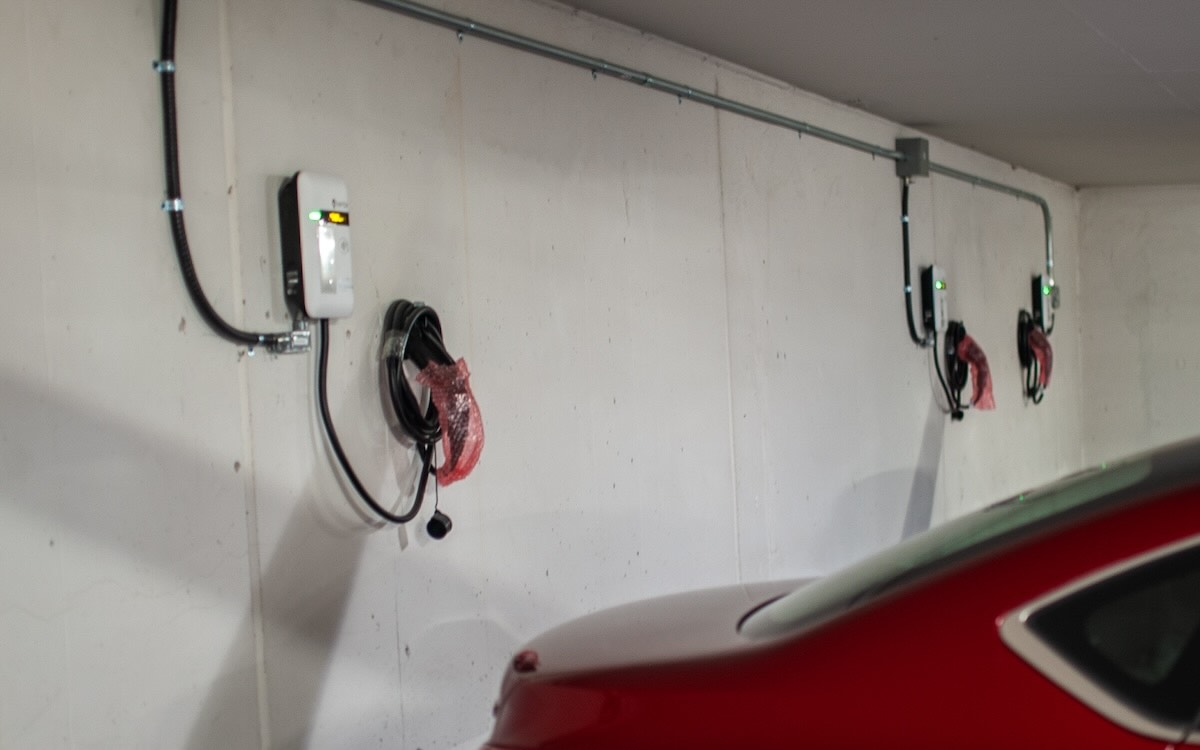
And with this installation, there’s now a path forward for other residents. “We now have a framework in place if additional owners want to have a charger installed and connect to our infrastructure,” says Saevitzon.
“Our owners now have one less barrier to buying an electric vehicle.”
If you’re interesting to crafting a similar story for your condo, get in touch with SWTCH to learn how you can.




